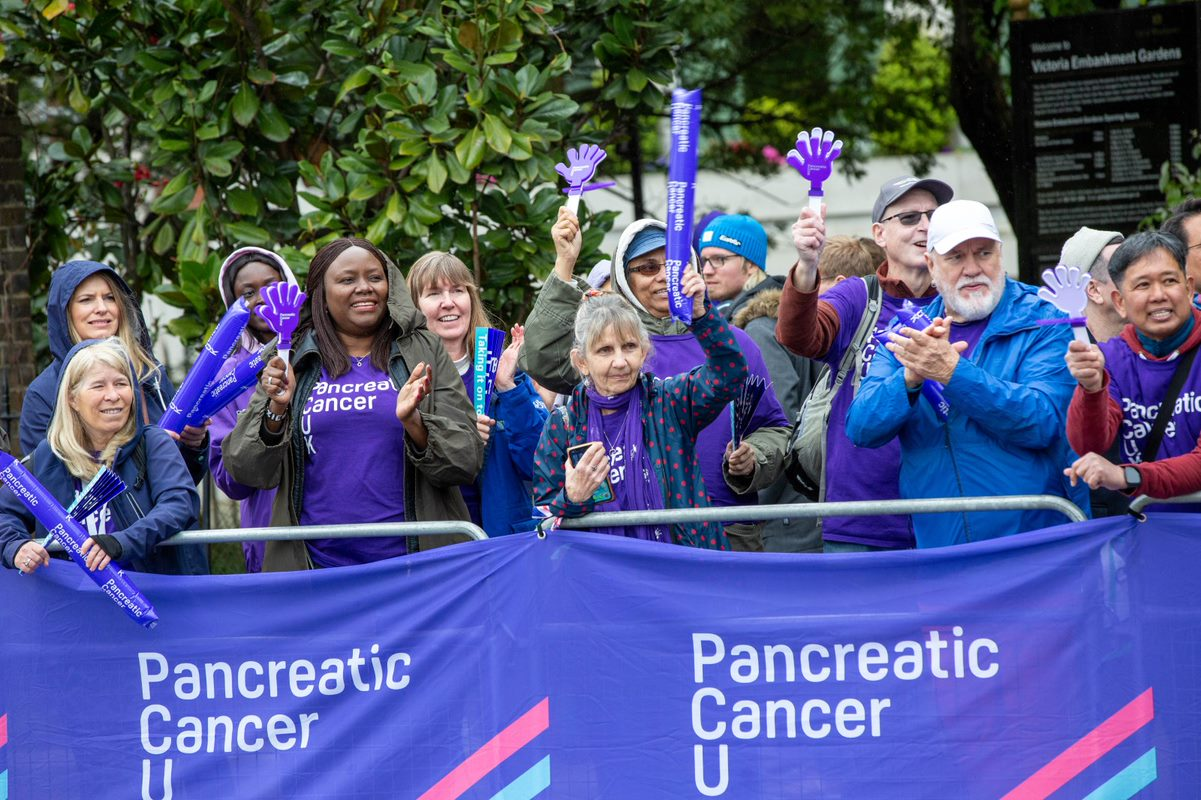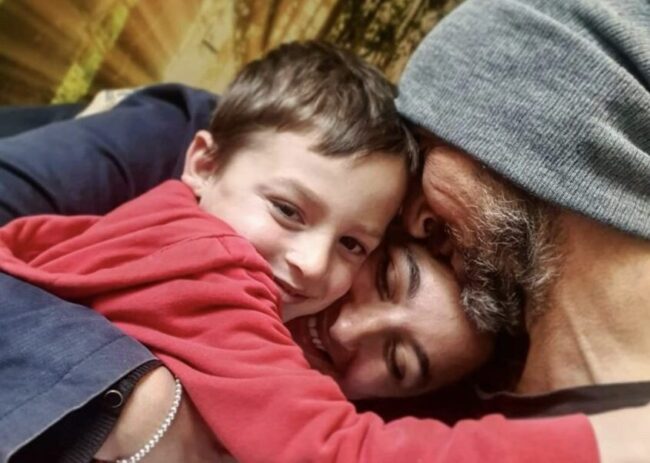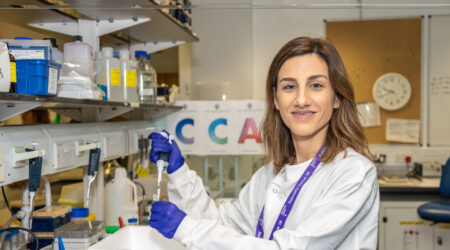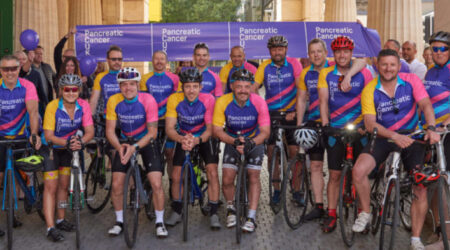

Our strategy
Finding breakthroughs. Giving hope. Saving lives.
We won’t stop until we achieve our vision – for everyone with pancreatic cancer to live long and well
Pancreatic cancer is the toughest of cancer challenges. But in the last five years we have seen more progress than in the previous five decades.
In the next five years, we know we can step up the pace and drive this progress even further forward, transforming how we diagnose, treat and care for people with pancreatic cancer – ultimately saving lives.
The problem
Pancreatic cancer has been left behind. Survival rates have improved enormously for most cancers.
Sadly, for pancreatic cancer, this is not the case: currently, more than half of people diagnosed with pancreatic cancer die within 3 months. This is unacceptable.
Our solution
We’re aiming to double survival rates so that many more people survive to live long and well.
Our objectives
We will drive earlier and faster diagnosis
…so everyone can be diagnosed early enough for treatment
Sadly, by the time most people are diagnosed with pancreatic cancer, it’s already at a very advanced stage. If we can drive earlier and faster diagnosis, more people will have their cancer detected at a stage where they can have treatment to save, or extend, their life.
Between 2023 and 2028 we will:
- drive forward scientific research into early detection by investing more than ever before
- give health professionals the tools they need to spot patients’ symptoms earlier
- raise awareness of the signs and symptoms among the public
- monitor people at higher risk.
So that:
- more people will be diagnosed sooner – at stage 1 and 2 rather than stage 3 or 4
- fewer people will be diagnosed in emergency settings such as A&E
- more people will be referred for life-saving or life-extending treatment
- more people will survive.
We will accelerate treatment breakthroughs
…so that people can benefit from better and more effective treatments
Pancreatic cancer is so complex that it has been hard to find effective treatments, so options are often limited. If we can accelerate treatment breakthroughs, we will give people with pancreatic cancer better and more effective treatments, so they can have a longer, and better quality of, life.
Between 2023 and 2028 we will:
- campaign for more research investment from government and other bodies
- transform the scale of our investment into research dedicated to developing trials and treatments
- ensure the research community has the funding and tools they need to find breakthroughs
- improve how people are supported through their experience.
So that:
- more people will be able to access high-quality treatment and the care they need
- fewer people will see their cancer come back after treatment
- people with pancreatic cancer will have a better quality of life
- more people will survive.
We will ensure high-quality treatment and care is available everywhere
…so that everyone can access good care, wherever they live
Pancreatic cancer is tough to detect – but even once it’s spotted, people can go on to face potentially huge obstacles: from getting their diagnosis, treatment and care – to having a better quality of life, and surviving. We know people with pancreatic cancer face a postcode lottery of care and we’re determined to change this.
Between 2023 and 2028 we will:
- achieve a consensus on what equals ‘best’ and make sure it benefits everyone
- inspire more people to join us to keep pancreatic cancer care high on the agenda
- provide training for health and care professionals to improve practice
- use data to help inform better care and support.
So that:
- more people will have access to high-quality treatment and personalised care, regardless of where they live
- more people will be able to participate in clinical trials if they choose to
- more people will remain well enough to embark on and complete active treatment
- people with pancreatic cancer will have a better quality of life
- more people will survive.
We will improve people’s quality of life today
…so that everyone is supported, empowered, and better able to manage their symptoms
Pancreatic cancer affects so many aspects of people’s lives – both physical and emotional. If we can support people, helping them to reduce the impact of their symptoms and take control of their experience and treatment, we can improve their, and their loved ones’, quality of life today.
Between 2023 and 2028 we will:
- develop a wider range of services, tools and information to
make the support we offer more diverse and accessible - give more opportunities for personalised and peer support
So that:
- people with pancreatic cancer will be aware of and able to
access high-quality treatment and care - people will be better informed, better able to manage their
symptoms, and better placed to feel more in control - more people will feel well enough – and well-supported
enough – to complete treatment - people with pancreatic cancer will have a better quality of life.
How we’ll do all of this
- We’ll double our annual income, from £9m in 2021/22 to £18m in 2027/28
- We’ll double our reach
- We’ll double down on making sure we’re as innovative, impactful, and cost-effective as we can be.
This is an ambitious strategy, and while we’re passionate about delivering it, we can’t do this alone.


Mihika’s story
“We only had seven months with Jay after he was diagnosed. If he’d been diagnosed just a couple of months earlier, he might still be here. The one thing Jay didn’t want was for our son, Kal, to grow up without a dad – but now that’s our reality.


“Most of us know someone who’s been diagnosed with cancer. But being diagnosed with pancreatic cancer is different. I can’t believe that in the 21st Century you could be diagnosed with cancer and have so few options.”
"The scale of this challenge needs a united approach - I hope that you will join us to bring about the transformation in survival rates that we dream of. The time to act is now."




